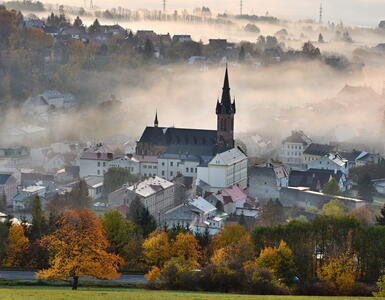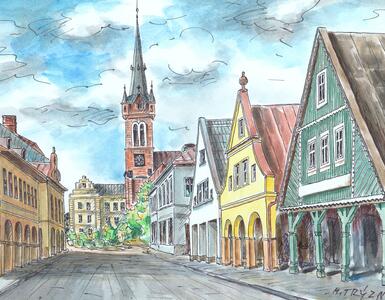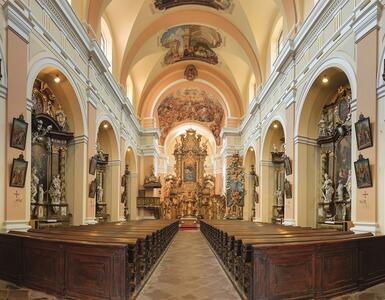Visitors’ Tour of the Town
You only have a few moments, but want to see at least the most valuable and interesting sights in Vrchlabí? Then this route is just for you. It will take you through the historic center, and in addition to important monuments such as the castle and monastery, you will also see the very modern KCEV Krtek building, two-thirds of which is hidden underground.
You will visit a square with four historic log houses, refresh yourself in the open Elbe millrace, walk along a footpath, and see old Krkonoše fruit trees and grid beds.
Townhall
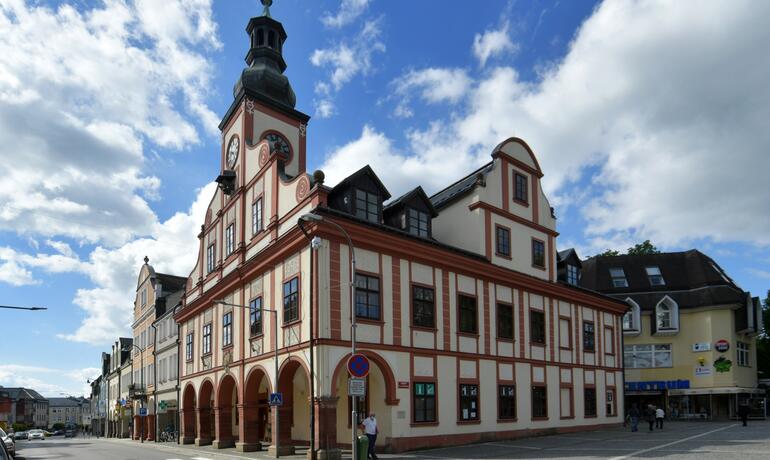
The Baroque townhall with a clock tower in the gable is the landmark of the main square. The bell hanging on the front facade was used in emergencies as well as on festive occasions.
Palace

The Renaissance palace which replaced the former Gothic moated fort was completed in 1546 as the seat of Krystof Gendorf of Gendorf. An unknown architect used the layout of an Italian castello (small fortress or stronghold). The building, originally surrounded by a 12m wide moat and accessible by three bridges.
KRTEK – Krkonose Centre for Environmental Education
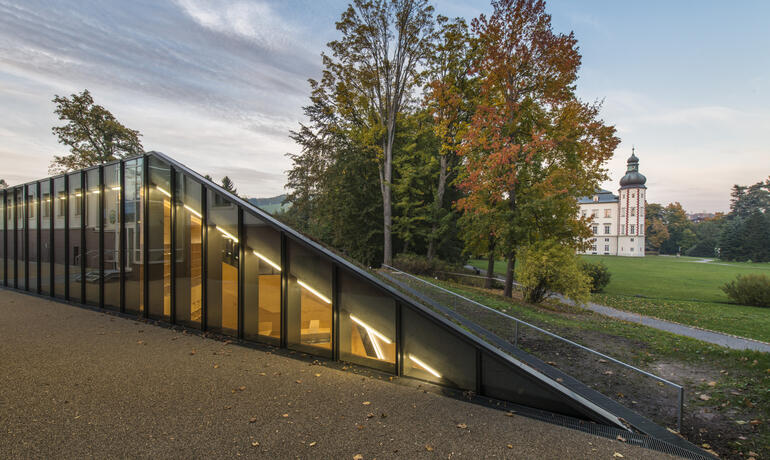
The Krkonose Centre for Environmental Education, nicknamed Krtek (“the Mole”), was built following a unique architectural design by architect Petr Hajek in 2014.
Augustinian monastery

The Augustinian monastery in Vrchlabi was established in 1705 following an initiative by the House of Morzin. The Augustinian Monastery has served visitors for many years to help them learn about the beauty and richness of the Krkonose Mts. as the seat of the Krkonose Museum as well as the Visitor Centre of the Krkonossky National Park.
Four historical houses

Due to the reconstruction, the exhibition in the four historic houses is closed for two years from 1 May 2025.
Church of St. Lawrence

This church was built in the Neo-Gothic style by a local builder, Eduard Zirm, on the site of a 14th century single-nave Gothic church, following a project by architect Stephan Tragl of Prague. The construction took place in 1886–1889.
Poetry Box
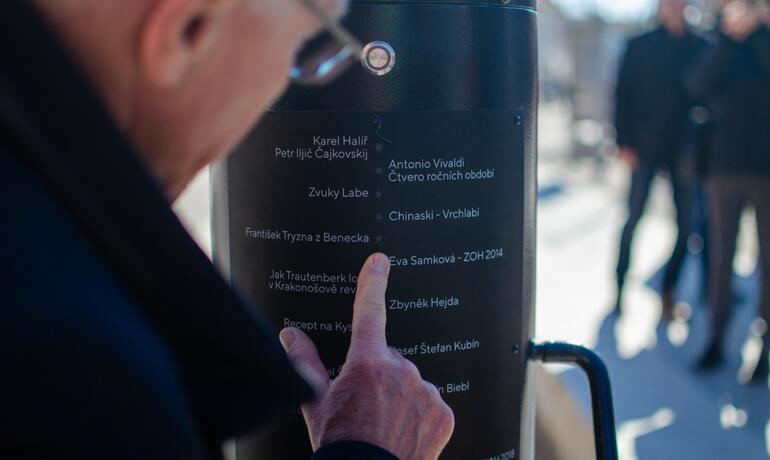
After turning the crank, an iron tube will offer the cultural, sports and natural icons linked to the town and the region. The audio tracks offer, for instance, a dialogue from The Firemen’s Ball, the famous movie by Milos Forman which was filmed in Vrchlabi, the sound of water from the River Labe, or Olympic medal-winning performances by Karolina Erbanova and Eva Samkova, both born in Vrchlabi.



